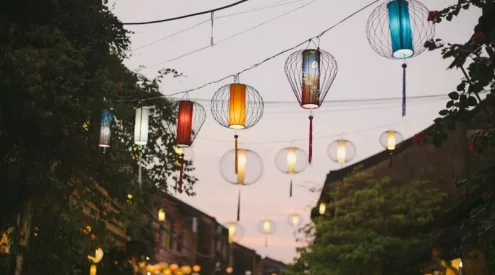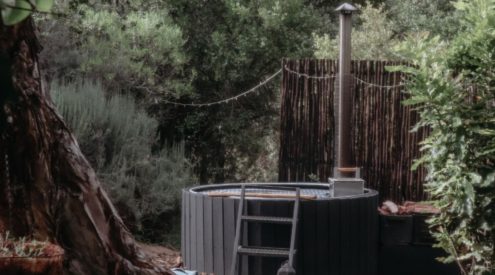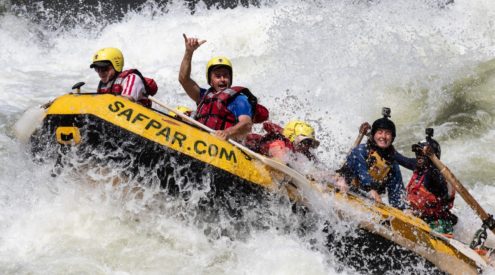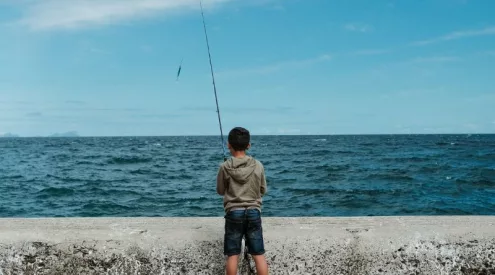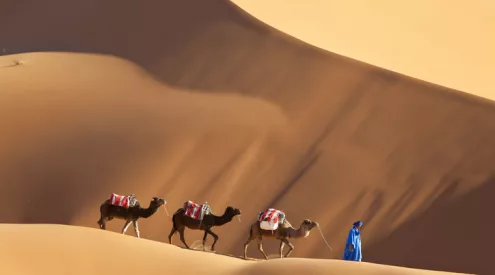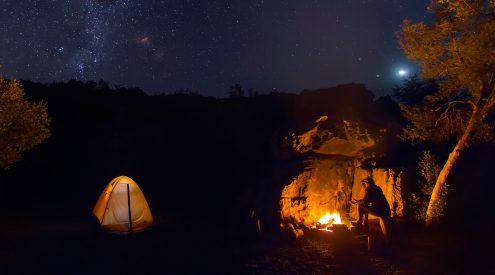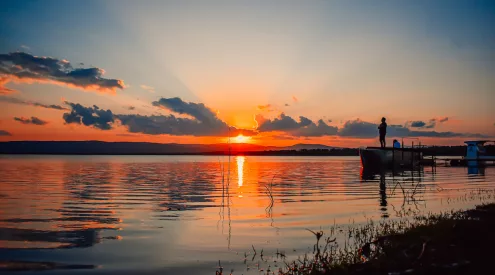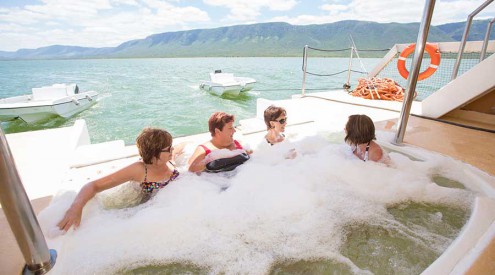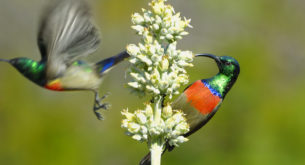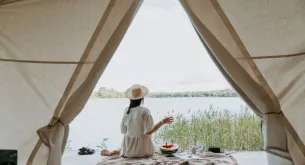This is my fourth week spent in the Kruger National Park. I did, however, take a short break from the bush for a few days to catch up on a bit of mist and rain back in Cape Town, but I’m back now, continuing my six-week journey from the south to the north of the park (catch up with my previous Kruger photoblogs here.)
So far, I’ve reviewed Lower Sabie Rest Camp, Skukuza Rest Camp, Satara, Berg-en-Dal, and many more. This week, I stayed at Nkambeni Tented Lodge, a beautiful accommodation spot that sits inside the camp, although not many people realise this, and I also stopped off at Olifants Rest Camp.
Although it hasn’t been a week of incredible animal sightings, I was treated to some of the most magnificent views I’ve seen of the park and a few beautiful bush sunrises and sunsets. Sometimes it’s important to admire the beauty of the park itself, without constantly ticking animals off a list. Follow me on my trip with these weekly photo blogs or find the hashtag #crossingkruger on Twitter.
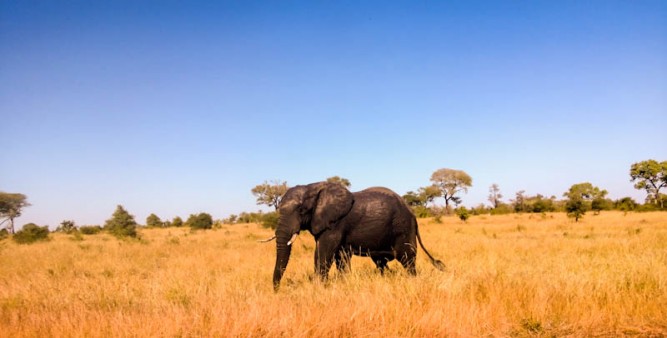
As I drove back into the park, I came across this here elephant. Seems like he had just gone for a swim and I decided then and there that I liked elephants better when wet. They just don't look like they're about to dry out anymore.
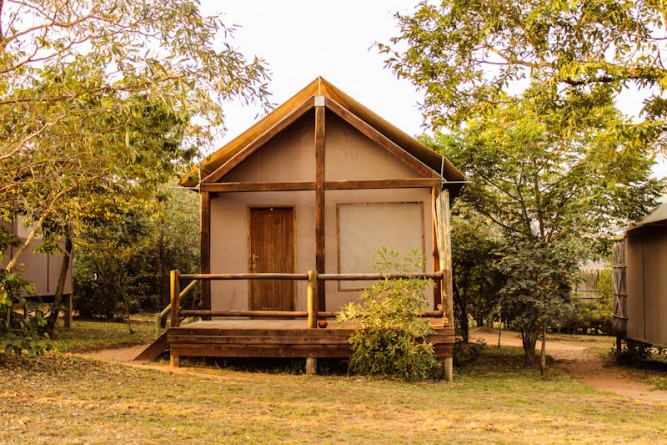
My first stop was Nkambeni Tented Lodge. Although not one of the official rest camps, this lodge is special in the sense that it lies inside the Kruger's gates, but supplies a much more luxurious place to stay. The game drives all take place inside the park and the buffet meals are exquisite.

The tents aren't really tents. They have canvas walls but solid roofs, doors and proper bathrooms. You have tea and coffee facilities and the outside shower is something truly wonderful.

On a sundowner drive, you drive up to a hill and watch the sun set with a drink in hand. I couldn't resist the temptation to have a Savanna in the savanna

The next morning I was up early and off on a bush walk. Here you get to learn more about the vegetation and you can inspect the traces that the animals left behind. A great way to feel closer to the bush.

Our shadows walking as the sun rises.
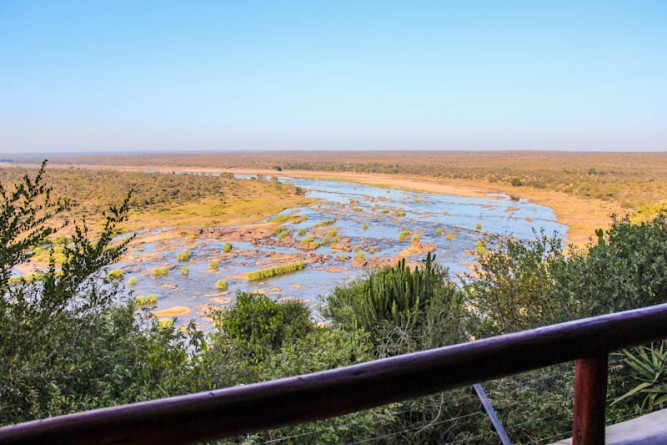
My next stop was Olifants Rest Camp, or as I like to call it, 'The place of the viewpoints'. There are about four fantastic places at which to stand and look out over the mighty Olifants River. This viewpoint is conveniently located inside the rest camp.
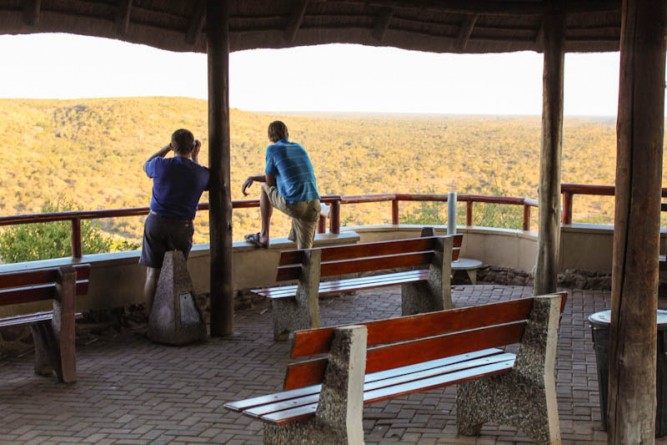
Hippo and croc sightings are regular occurrences along the river, so there's always a few hopeful gazers taking advantage of the viewpoint inside the rest camp.
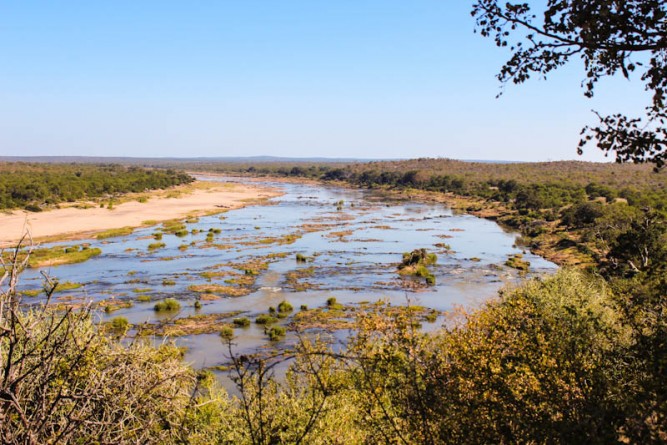
It may seem like the same view, but this is actually what you'll see from N'wamanzi Lookout, a viewpoint about 9km from Olifants. Another spot to stop off and perhaps spot a few water birds.

As you might have noticed by now, Olifants Rest Camp is all about the views. These bungalows have the best views by far and you don't even have to get out of your pajama's to see the hippos.

The restaurant at Olifants is pretty rad. The deck is fitted high up on a hill (above the viewpoint) and they incorporated the trees quite well.
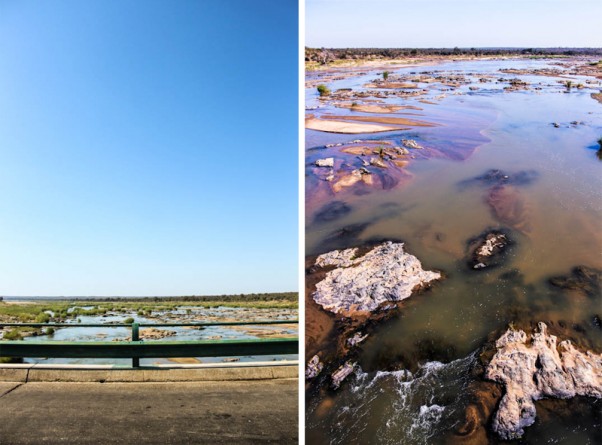
Just a short drive south from Olifants you'll find a high level bridge that crosses over the Olifants River. This is probably the closest you'll get to the river, and even if there aren't any animals at the time, you can still admire the pretty patterns that the water and the sandbanks make below.

The great thing about this bridge is that you can get out and look over the side. It's quite a surreal experience, climbing out of your car on a road and then being suspended above a massive river, on a bridge 300m long.

For this trip, I was lucky enough to get a Renault Clio and I must say, we are having a great time together in the bush.
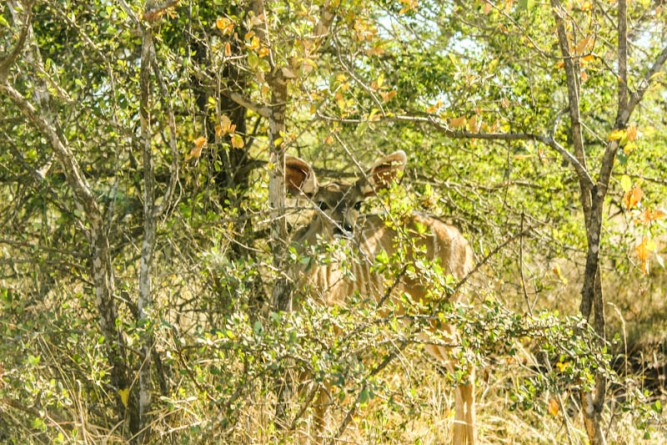
This baby kudu truly knows the meaning of the word 'camouflage'

I just had to give you the weekly fix of giraffe pictures. This male was astoundingly tall.
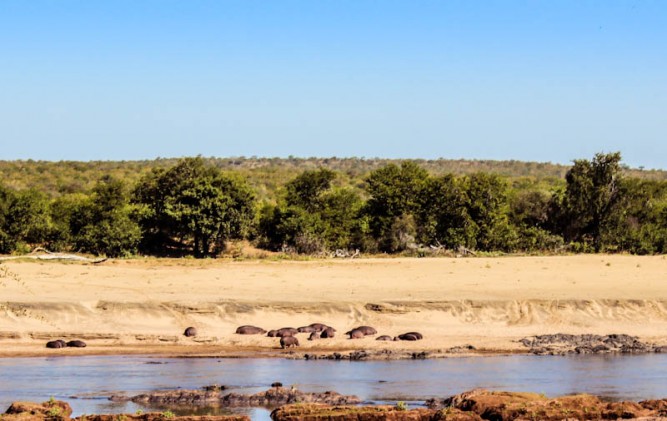
To me, this group of sunbathing hippos looked a lot like I would imagine a large group of beached whales looks like.

I just had to sympathise with this camper. I know how it feels to travel through Kruger on my own, but at least I don't have to do it in a tent.

For this trip, I did away with the mosquito bands that last two days at the most, and opted for ParaKito, a new mosquito band on the market. You insert a little plaque underneath the mesh and replace it only every two weeks, keeping the band. Mosquito season is starting to end, but I think this actually works quite well.

Few things compare to a bright orange sunset in the bush
Catch up with Crossing Kruger week one, week two and week three here.

